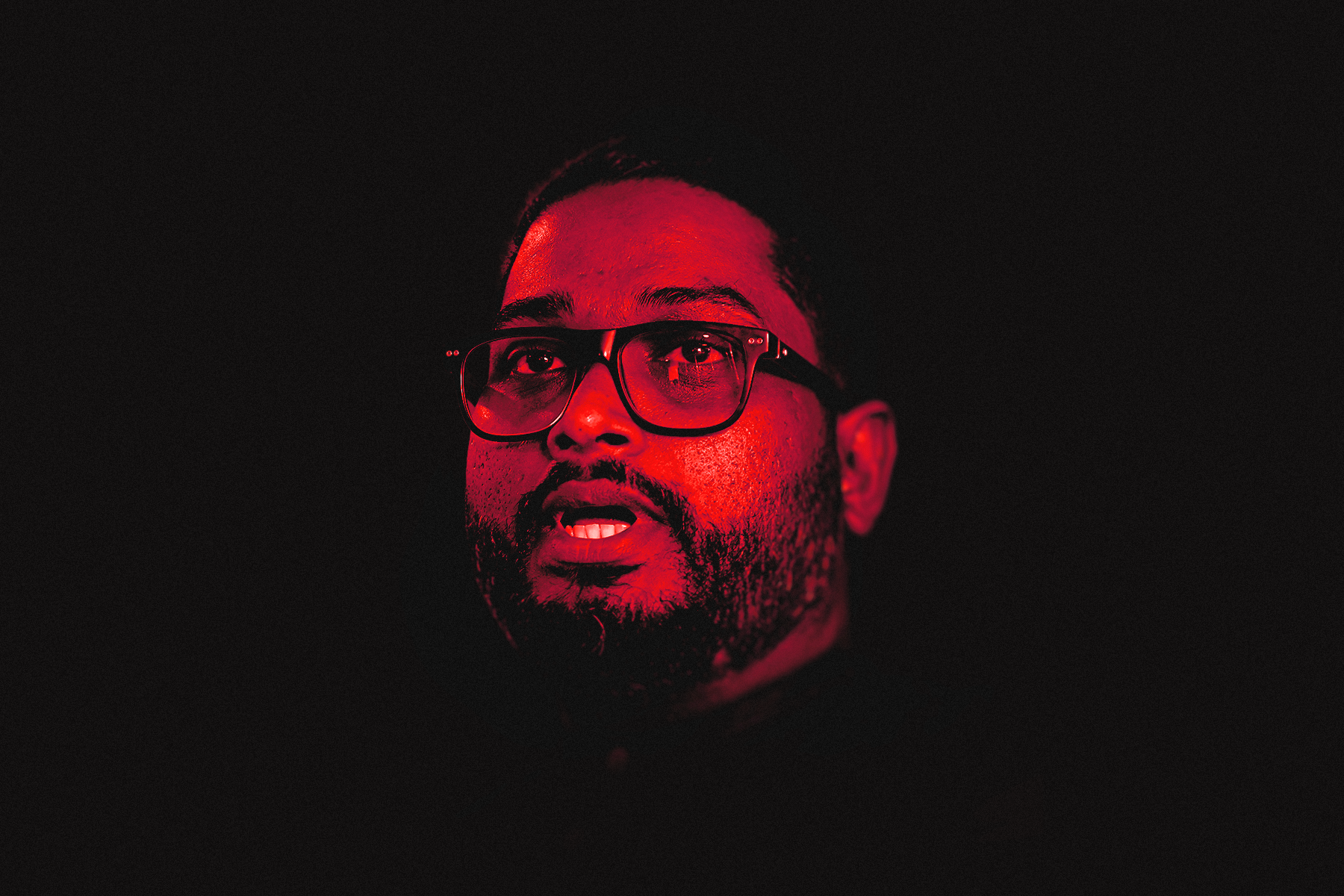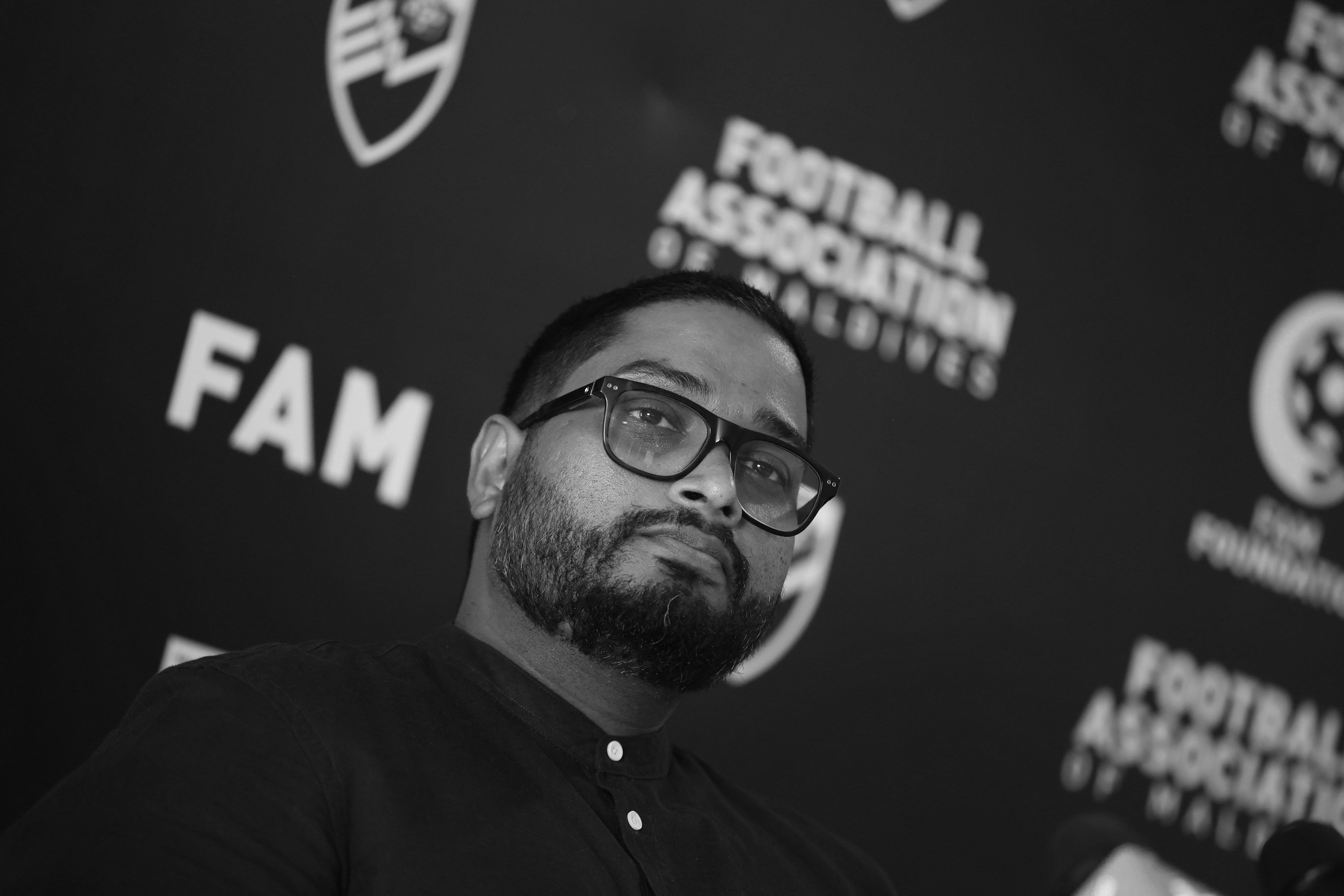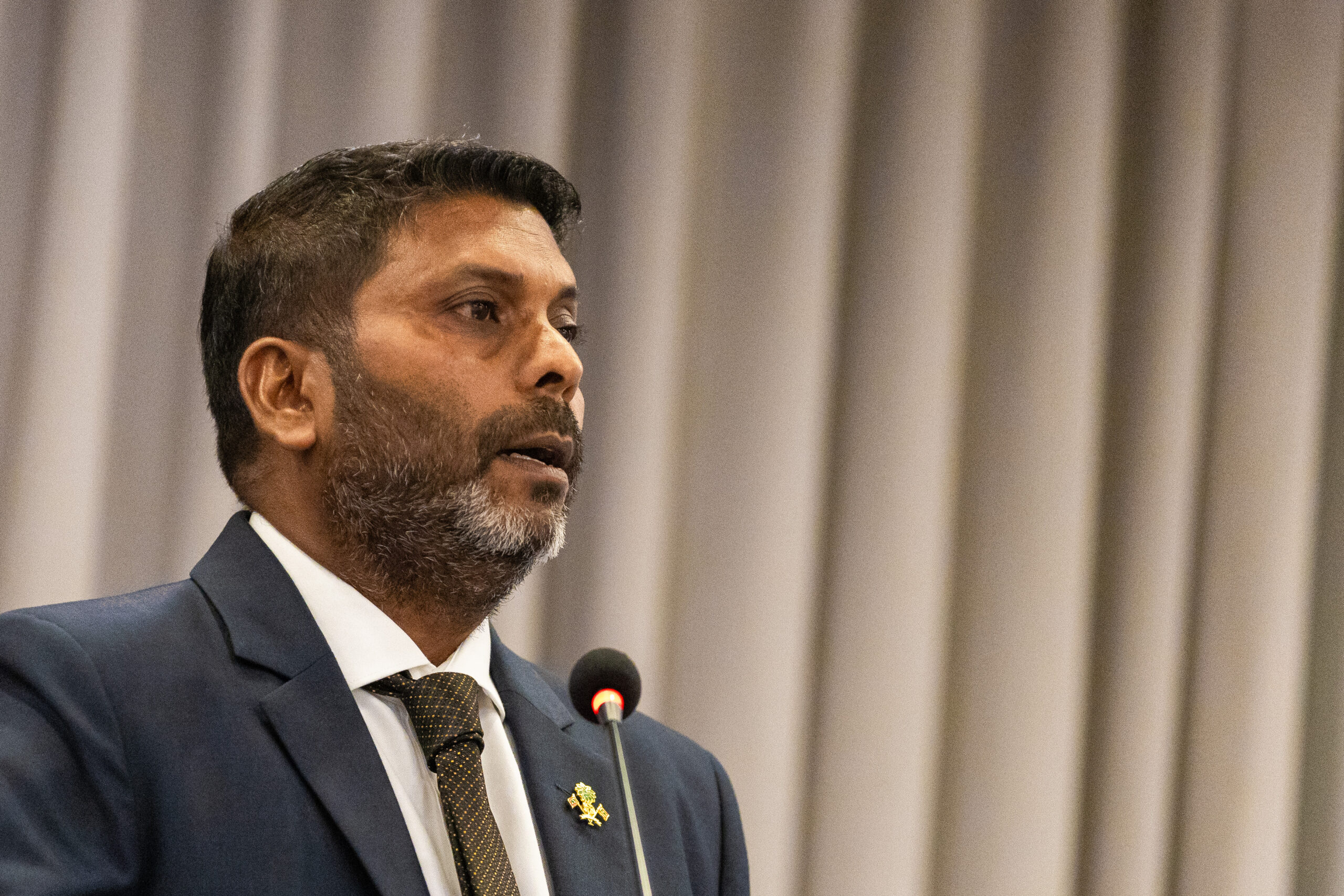Eight months before the Football Association of Maldives came under normalization, its then-president Bassam Adeel Jaleel sat down for an interview with Mihaaru News, where he reflected on his two-term presidency and defended the association in the face of mounting public scrutiny over serious allegations of financial misconduct.
At the time of the interview, the Dhivehi Premier League was reaching its final fixtures of the season, and Bassam was presiding over a crumbling institution.
He sat down to set the record straight, categorically deny the allegations, double down on his criticism of the media, and call out the role of the previous government in causing the FAM’s financial crisis.
A Stalled Vision
He began by stating that his first term as president was wildly successful. Then he acknowledged the difficulties in his second term in office – and what led to the crisis.
“Many things which we planned for this term have been halted,”. Acording to Bassam, some of the triggers for FAM’s financial crisis were sponsorship scarcity, the government’s decision to stop funding for clubs in early 2019, and the repercussions of the COVID-19 pandemic.
Because the “investments of FA outweighs the income” he said the FA leadership looked to secure funding from outside the state, saying he had travelled to the Middle East and held talks with FAs of some gulf states.
Reflecting on the COVID-19 pandemic, Bassam admitted, “Two years were wasted. I am not happy with our performance in this period.”
By arranging to host the SAFF Championship at home, what Bassam wanted was “to make Maldivians happy” and “forget the lonely days of Covid”, saying we saw just how much love Maldivians still have for the national team.
Bassam shared his frustration of the government, the lack of support the FA got in the run-up to the championship. The budget was MVR 21 million, but the SAFF championship left the FAM burdened with debt – debt that could have been avoided if the government did not delay its payments.
Bassam pointed out that the government, despite agreeing to give full support the championship, had only released funds three days before kickoff.
And by that time, accommodation expenses alone had hiked up to 18 million, up from the allocated nine million – because of budget delays. FAM ended up with a cumulative debt close to MVR 30 million, he revealed.
But he remained hopeful: “Two years since, “we have reduced the debt to 8 million” he said, adding that the FA’s target for the end of 2023 was to foreclose it.
On sponsorship scarcity
Throughout the interview, Bassam repeatedly brought up the FAM’s “clash” with the former government administration.
At one point in the interview, he implied there is something suspicious about the unprecedented halt in sponsorships to Dhivehi Premier League. These sponsorships were for the most part, given from state-owned-enterprises. When asked why it was was halted, Bassam told the Mihaaru journalist to “look into it” and find out the underlying cause of this. But what he did know was that “somebody was telling them (the companies) to not provide sponsorships to FAM”.
While between 2016 and 2018, clubs thrived with sponsorships from state-owned enterprises, Bassam said things changed drastically after the previous administration cut those funding in 2019: “Now, you look up the day when all this changed. Since early 2019, the clubs had no means to get money. The government was no longer giving (financial) backup to the clubs. So how do we run these clubs?” But FAM stepped up and took that responsibility into its own hands, says Bassam, and acted as a financial buffer for the clubs well into 2022.
Bassam remained adamant that sponsorship cut off was political in nature. “The government has, because of their clash with us, created days of hardships for Maldivian football.”. He went on to repeat the need for sponsorships as part of FAM’s survival “Because FAM is not a business; We operate by sponsorships and contributions (from state funds and international grants).
He clarified that grants received from FIFA and AFC, are not being combined with other funds, and were not being utilized for any purpose other than the projects it was provided for.
In his tone and the language he used, Bassam seemed to be genuinely concerned for the welfare of the clubs: “Of the 3 million rufiyaa they receive, the clubs have to do the salary stuff. Find the necessary equipment. Pay the tickets of foreign players. Pay the visa fees. Pay the rent for their accommodations.”
He insisted that the public image of FAM “having a lot of money” is misleading, pointing out the fact that the payment they were able to hand out to clubs was impossible to make ends meet for the players: “The three million we are giving them each year, it is not enough to operate a club today.”
“We have capped the monthly salary of 30 thousand rufiyaa for a (highest earning) player.” He pointed out that most players come from the atolls and have to pay high rents in Male’. “Even a one-room place is leased at about 15,000 rufiyaa. After paying for the rent, electricity and water, what do the players have left?”
“The salaries need to be raised,” he continued. “But it can be raised depending on how much funds enter here. By here, I mean, football.”
The Maldivian football clubs, in Bassam’s opinion, cannot be compared with international clubs. “The clubs do not have stadiums of their own. The clubs do not have sources to generate revenue. Because the Maldivian population is so small, our clubs could not pull out money by selling merchandise. Selling entrance tickets, i do not think it is something that brings in money these days. Even when we try to get people to enter the stadium, a big area of the bleachers have become unusable. So the clubs today are functioning, with a lot of effort, with a lot of hardships”.
“Back in 2019 when the government cut off the sponsorships to FAM via the SOEs, we FAM took that responsibility for this exact same reason,” Bassam recalled. “If we had not, I think just a very few number of clubs would even exist today.”
He also expressed admiration for the people managing local clubs under these conditions. “I salute the club managements, the effort they put in to operate the clubs. What they discuss with me is, how they wake up every day and find ways to find the money for their clubs; how to pay the wages of the players.”
Despite the chaos, Bassam remained optimistic in November 2023. “I think after this November, some bright days are ahead for football.”
Bassam also said he is optimistic about the new administration – which had promised recovery for football – adding that “From January 2024 onwards, its gonna be a new chapter”.


 Ali Thameem
Ali Thameem








